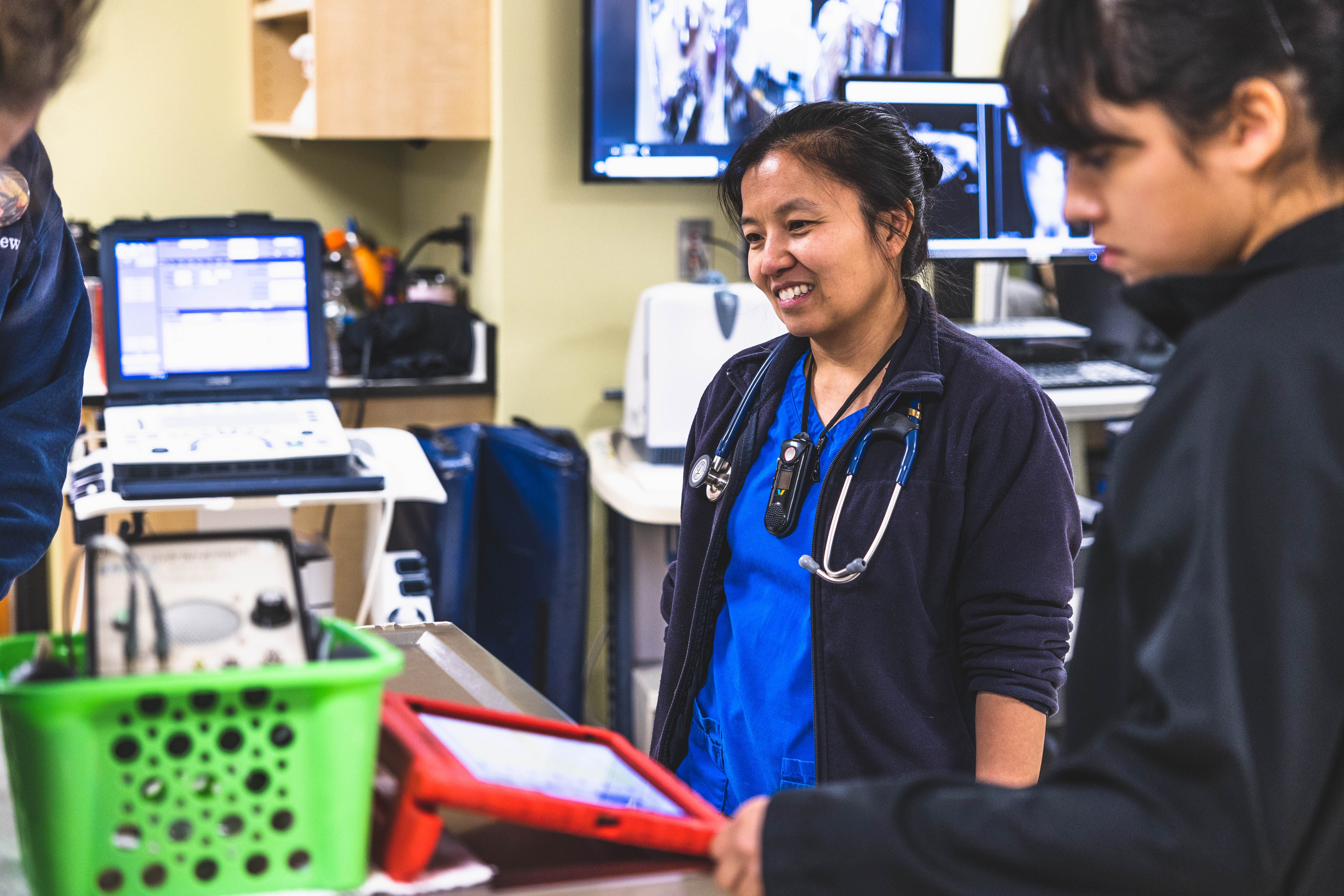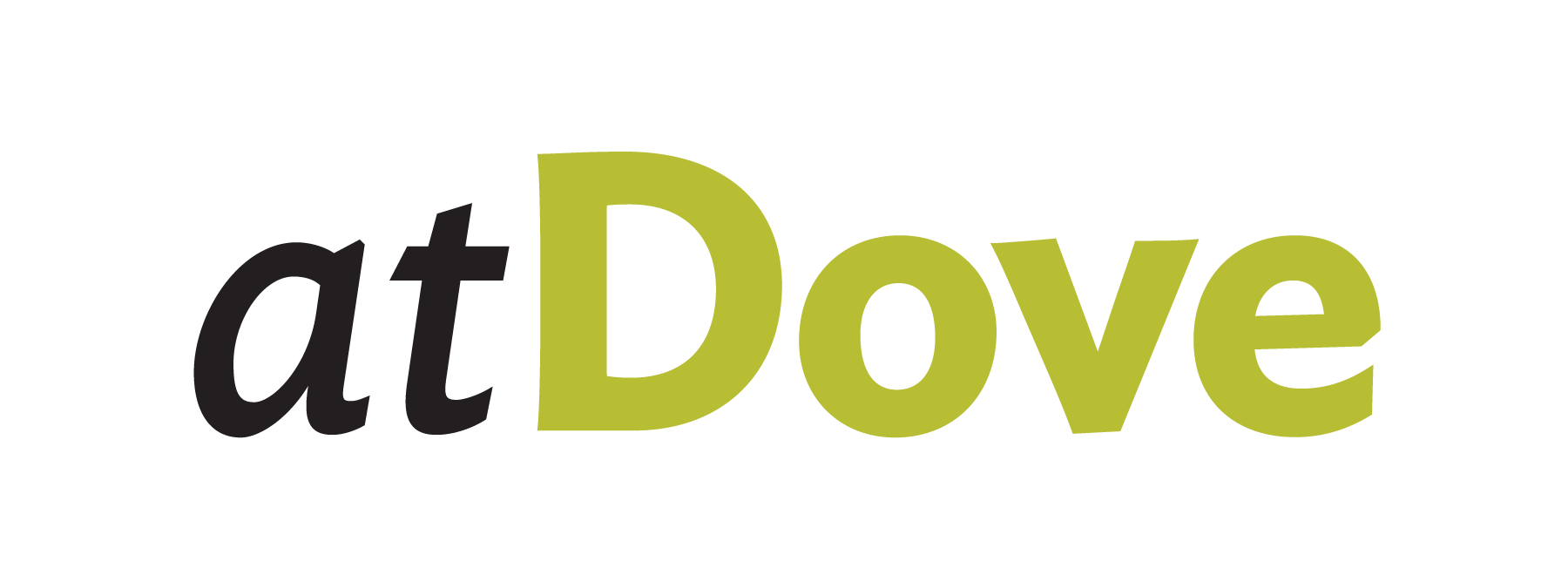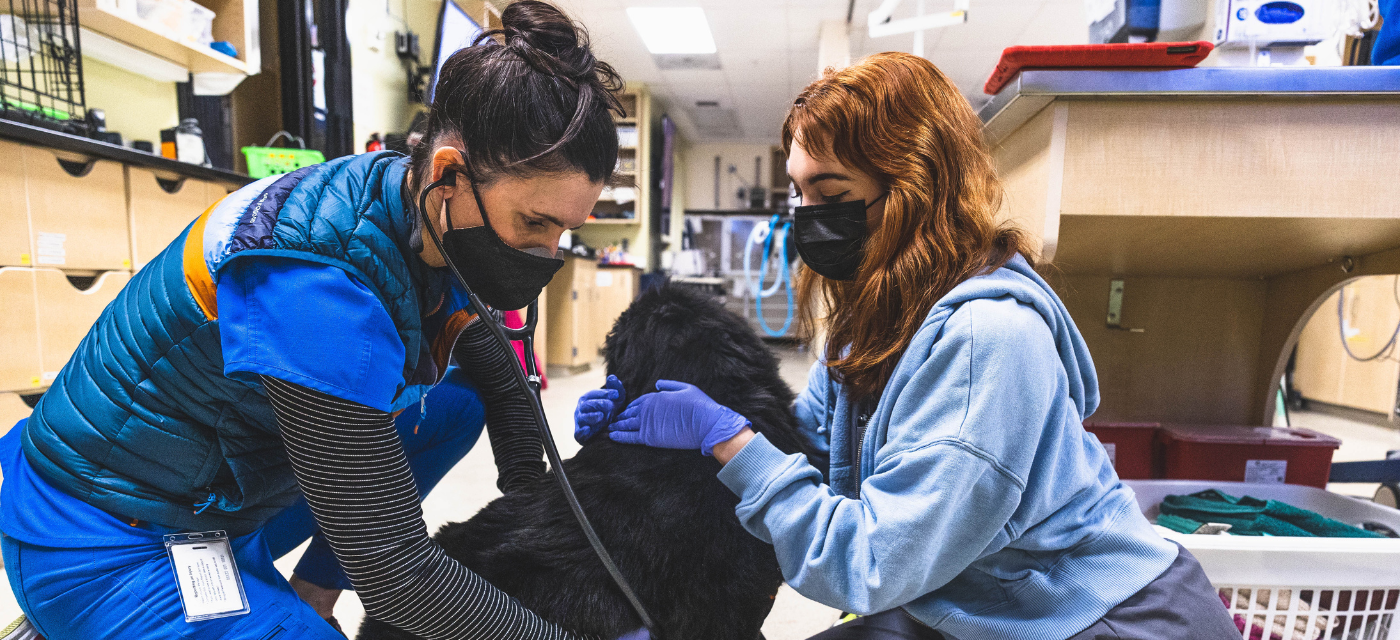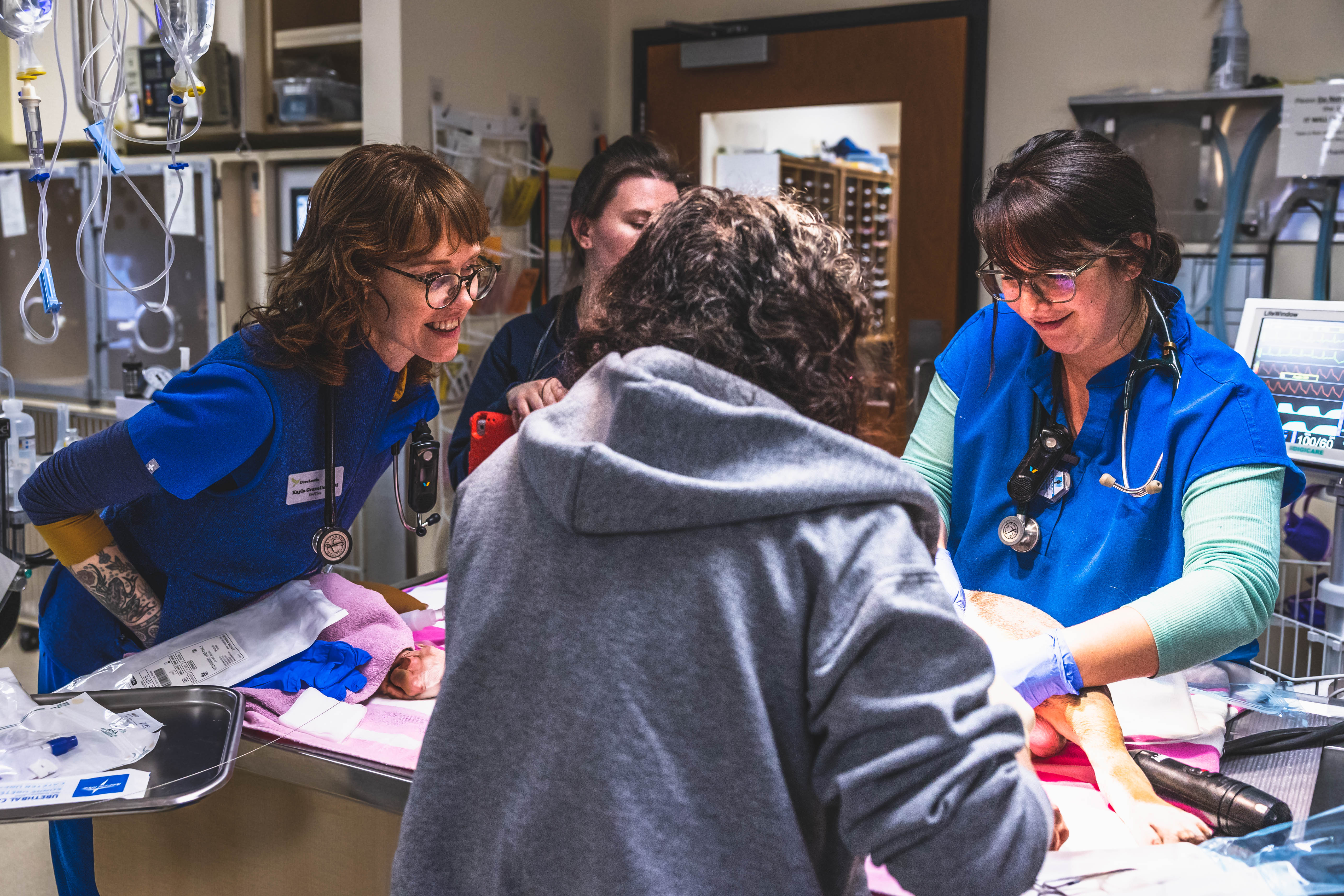Self-Care Part One: Redefining Your Own Self-Care

Self-care can be so fiddly. I was introduced to the concept of self-care in my social work program, and beginning there, my relationship with it has been multifaceted.
During my program, some discussions about self-care felt very superficial: your work is stressful, so do these things to feel better. At its worst and most unhelpful, the concept of self-care could morph quickly into shame: this is hard because you didn’t do the self-care things, so you only have yourself blame. Other times, the discussions laid bare the tension of focusing on myself when there are many systems that influence my resources to do so: Dear Professor, did you really encourage self-care and then assign me three chapters and a five-page paper due by next week?
But what also deeply resonated with me then – as it does now – is that you can’t pour from an empty cup. The work that we do in caring professions – and this 100% includes every veterinary professional from front office to OR to business teams – is inherently draining. It takes a lot of energy to be fully present and provide care and support to patients, clients, and our teams. (And beyond our work, it also takes a lot of energy to be fully present for those we love and care about in our personal lives.)
Since my graduate program, I’ve done a lot of self-reflection, learning, and unlearning around self-care. These are some of the learning and thoughts that have helped me as I try to engage consistently and authentically with self-care.
Redefine self-care
The first image that often comes to my mind when someone mentions self-care is a bubble bath with strategically placed candles and plants accompanied with #selfcare. Bubble baths with candles and plants can genuinely be a part of someone’s self-care; however, at its worst, this image represents a narrow and commodified version of self-care. It reinforces perceived barriers to engaging in self-care: self-care needs to look a specific way, self-care takes too much time, self-care is a luxury, or self-care is too expensive.
When I don’t feel like I’m doing self-care “right,” I find it helpful to return to the earliest definition of self-care – when it simply meant “care of self” (A History of Self-Care). Self-care is an individual practice based on everyone’s unique situation and resources. Anything you do to take care of yourself is self-care.
Putting yourself first is not putting others last
Self-care is not selfish. Taking care of yourself by intentionally replenishing your resources is what allows you to be authentically present for others. It’s important to fill your cup – even by drops at a time – so that you can continue to keep pouring.
It can be easy to set yourself up to fail
When self-care becomes disconnected from its intention, it can shift into a to do list and a guilt trip. I think if asked, many of us would be able to produce a lengthy list of the things we know we “should” do and don’t do. Sometimes the weight of that list becomes one giant roadblock to engaging in any type of self-care. Other times, the plans that we set for ourselves are too many or too vague: eat healthy, exercise, and read more.
When I notice that “should” is on repeat, it’s helpful for me to acknowledge to myself that I am stuck and redirect my focus to one task at a specific time. Sometimes, that may be one thing that I can do in the next five minutes – e.g. take three deep breaths – and other times, it’s a plan for later – e.g. pay the bills after dinner.
Accept that it takes effort (and acknowledge when you have made effort)
The darker side of #selfcare culture is pervasive and because it’s associated with a false expectation of ease, it’s easy to forget that self-care takes effort. It’s important to remember that sometimes self-care can look and feel like parenting yourself. Making a budget or setting boundaries are self-care.
And as mentioned above, because self-care can sometimes shift into the things you “should” do, it can be easy to be dismissive of the ways that you’re already engaged in self-care. Some days, it’s important to acknowledge the effort that I’ve put into showing up: I woke up on time, I showered, and I brushed my teeth.
Self-care is like tending to a garden
Self-care is a lifelong practice. It’s more like tending to a garden than it is like finishing a race. And thinking of self-care in this way, helps me to welcome flexibility within my own self-care. During the growing season, there are many days when I need to water my garden, there are some days when I need to turn the soil, and there are occasional days when I need cut back growth. Similarly, there are tasks or practices that I may do regularly to continue to replenish my cup, and there are tasks or practices that I may do in response to my cup being drained.
Every season of gardening requires new lessons to be learned. Likewise, I like to remember that self-care is a practice and keep myself open to exploring who I am and what I need in each unique moment.
Self-care has a fascinating history, and it has held different meanings for groups throughout time. For more information, read A History of Self-Care by Aisha Harris and The revolutionary origins of self-care by Nicole Stamp.


